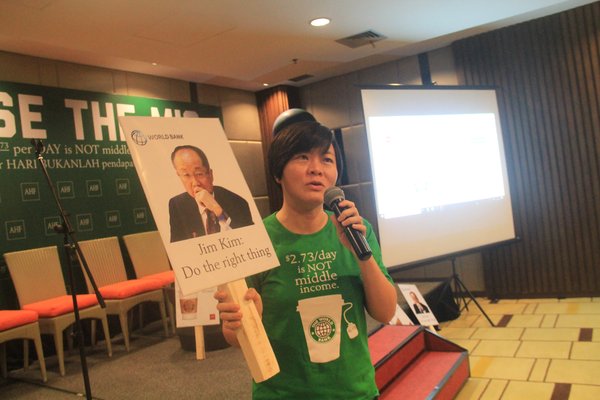BALI, Indonesia, Oct. 12, 2018 /PRNewswire/ -- In Nusa Dua, the largest AIDS organization in the world, AIDS Healthcare Foundation (AHF) is highly concerned about the declining international funding for HIV/AIDS treatment in developing countries, including Indonesia.

As a matter of fact, the ability of the Indonesian government to deal with people with HIV/AIDS is inadequate. "Of the approximately 360 thousand people with HIV/AIDS, only 290 thousand people can be handled," said AHF Indonesia Country Program Manager, Riki Febrian, at Santika Siligita Hotel, Nusa Dua, Bali, Thursday, October 11, 2018.
Riki said that international funding for HIV/AIDS treatment in developing countries, including Indonesia, was recently reduced. This happened because the World Bank imposed a new classification on Middle Income Country (MIC). The World Bank sets a country where people earn US$ 2.73 per day, or about as much as the price of a cup of coffee in many countries, is not included in a group of poor countries.
"In fact, donor agencies or institutions, such as the Global Fund to Fight AIDS, Tuberculosis and Malaria, uses the World Bank income scales to determine the countries eligible for their funding," said Riki.
Considering Indonesia belongs to the MIC category, Riki added, international aid for Indonesia has shrunk and this has worsened the handling of HIV/AIDS in this country. All this time, as much as 80% of funds for handling HIV/AIDS in Indonesia come from outside. "Because we are now considered to be rich, other countries and funding agencies stop their support," said Riki.
Therefore, during the Annual Meeting of the World Bank and International Monetary Fund (IMF) in Nusa Dua, Bali, 8-14 October 2018, AHF calls on the World Bank to change its policy regarding the classification of middle income countries (MIC).
AHF, among others, pursues creative ways to campaign for the need to change the country classification by distributing "World Bank Coffee" for free around the arena of the annual meeting of the World Bank - IMF in Nusa Dua. In the cup is written "$ 2.73 per day is not middle income".
"AHF is asking the World Bank's attention through coffee, because 2.73 US dollars is equivalent to the price of a cup of coffee," said AHF Asia Advocacy and Marketing Manager, Marie Ko.
The reduced funding for handling HIV/AIDS in Indonesia is indeed a big concern, considering the fund needed for HIV/AIDS treatment is quite large. According to an activist of the Indonesian Family Planning Association (PKBI), Muvitasari, this year Indonesia needs Rp 4.2 trillion to deal with HIV/AIDS. The funds come from the APBN, APBD, CSR, various aids and fundings from international donor agencies.
"In 2023, the required funds will increase to Rp. 11.6 trillion," said Muvitasari.
Therefore, AHF continues to urge the World Bank to rectify its classification method regarding MIC. "The World Bank must re-calculate about MIC," said Riki.
AHF is a non-profit organization based in Los Angeles, United States. AHF currently provides care or medical services to more than 1 million people with HIV/AIDS in 41 countries, spread across the US, Africa, Latin America, the Caribbean, Asia Pacific, and Eastern Europe.